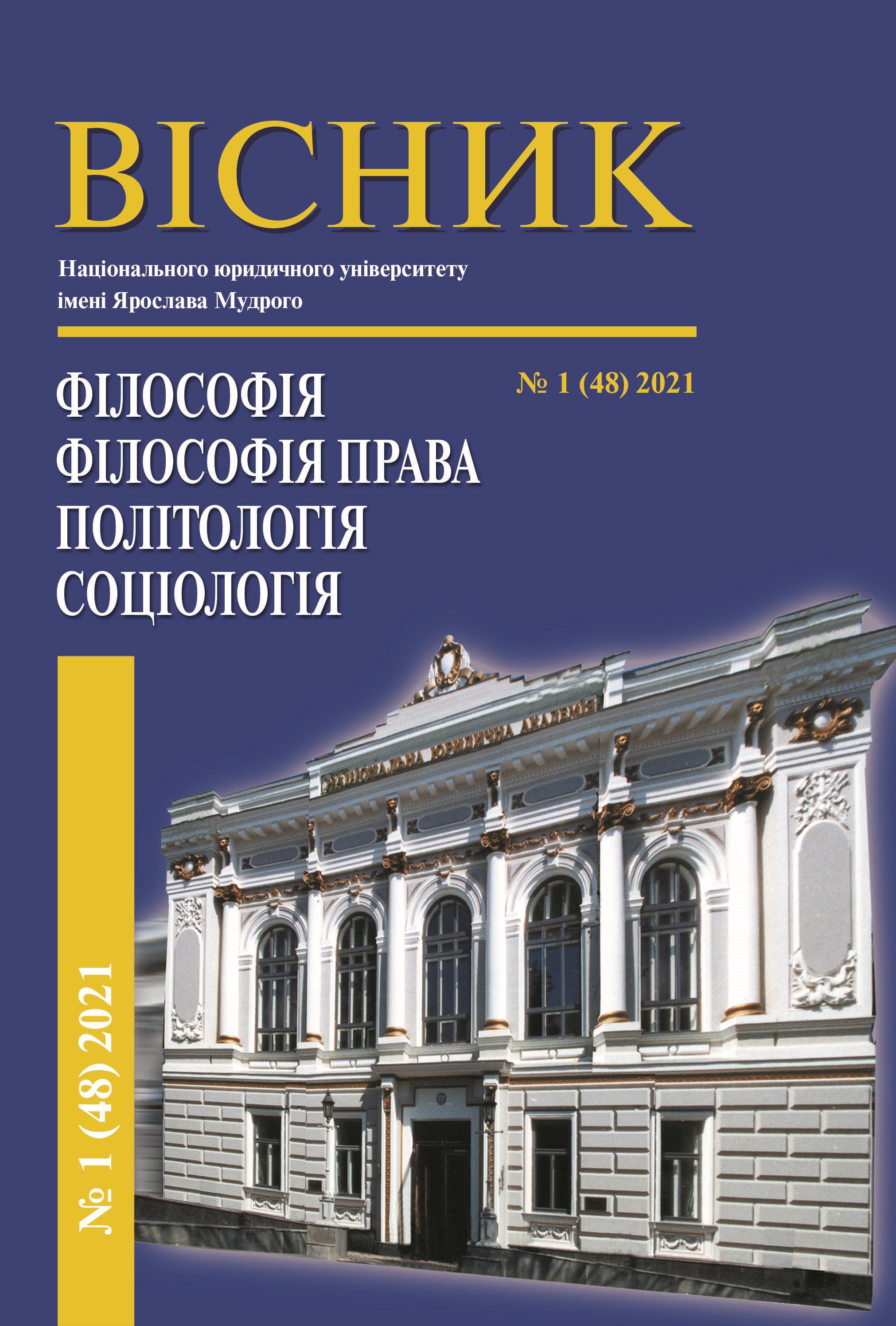О СУЩНОСТИ И ГЕНЕЗИСЕ ПРАВОВОГО НИГИЛИЗМА И ВОЗМОЖНОСТЯХ ЕГО ПРЕОДОЛЕНИЯ
ON THE ESSENCE AND GENESIS OF LEGAL NIHILISM AND THE POSSIBILITIES OF ITS OVERCOMING
Author(s): Tetiana Mikolaivna DyshkantSubject(s): Ethics / Practical Philosophy, Philosophy of Law
Published by: Національний юридичний університет імені Ярослава Мудрого
Keywords: natural law; law; legal nihilism; the formation of legal consciousness; the factor of postmodernism;
Summary/Abstract: Problem setting. When the defining word «legal» is added to the concept of «nihilism», new meanings arise, which requires checking how correctly this phrase is used in legal sciences. To preserve statehood, it is important to understand the essence and genesis of legal nihilism.Recent research and publications analysis. Despite the presence of attention to this important problem, both in the domestic and foreign literature devoted to the problems of law, there is still enough uncertainty in understanding the essence and causes of legal nihilism, which requires clarification and correction.Paper objective. It is necessary to clarify the meaning of the concept of «legal nihilism» by comparing this phenomenon with various forms of manifestation and thereby concretize its essence and origins. This will allow, in turn, determining the possibilities of overcoming it.Paper main body. The article actualizes the problem of the conceptual apparatus of legal sciences, which is associated with the vagueness and ambiguity of some concepts, including the concepts of «natural law» and «law». Ambiguity of the concept of law both as a goal and as a tool can become a source of legal conflicts. By clarifying this concept, it is possible to come to a deeper understanding of the concept of «legal nihilism», which is important for the field of law. The analysis of types of legal nihilism leads to the conclusion that it is necessary to distinguish between natural law and law, recognizing the primary role of human rights and the instrumental role of law.Two non-mutually exclusive opportunities to avoid nihilism associated with the education of citizens of legal consciousness are considered. The first is related to the education of respect for universal human values and their acceptance. Submission to the moral law, in theory, should prevent the violation of legal boundaries in the action of the subject. In the second case, this is a pragmatic way of bringing to the attention of citizens information about the inevitability of punishment. As a result, the conviction is formed that it is more profitable to comply with laws than not to comply, especially since being in the legal field ensures stability and security.The presence of prerequisites for the effective implementation of these opportunities in the modern world is analyzed. At the same time, modern realities were taken into account, for example, such as the processes of globalization and the factor of postmodernism.Conclusions of the research. The reason for legal nihilism is violations in the development and application of legislative acts associated with a complex crisis affecting the social, economic, political and legal spheres. All calls for the education of legal consciousness will be declarative in nature without eliminating the objective reasons leading to its distortion.
Journal: Вісник НЮУ імені Ярослава Мудрого. Серія: Філософія, філософія права, політологія, соціологія
- Issue Year: 48/2021
- Issue No: 1
- Page Range: 121-132
- Page Count: 12
- Language: Russian

